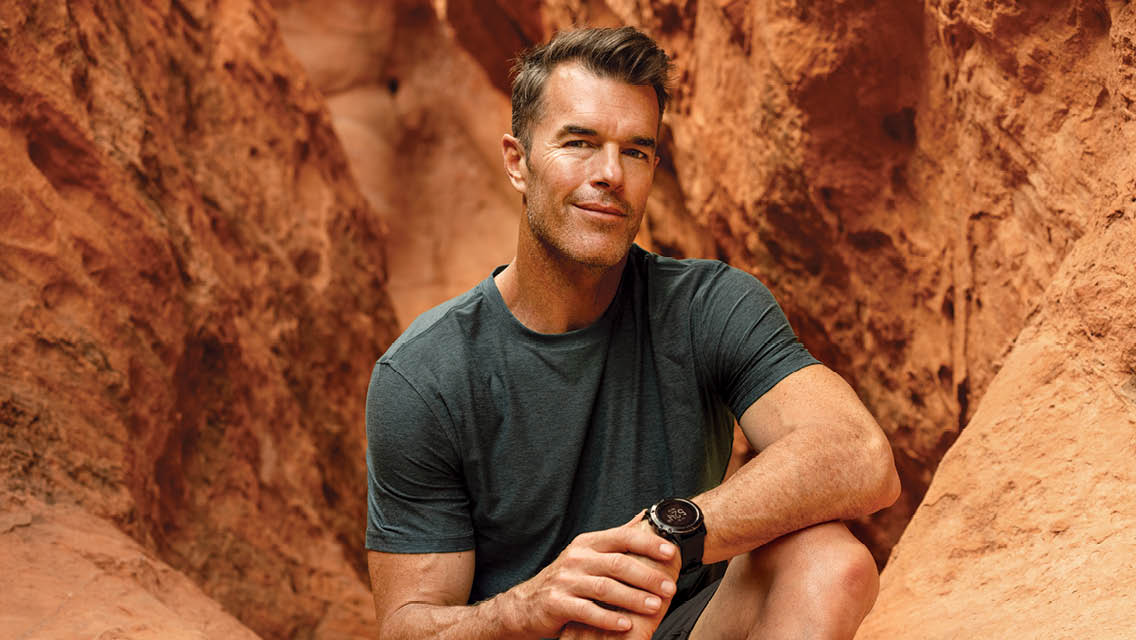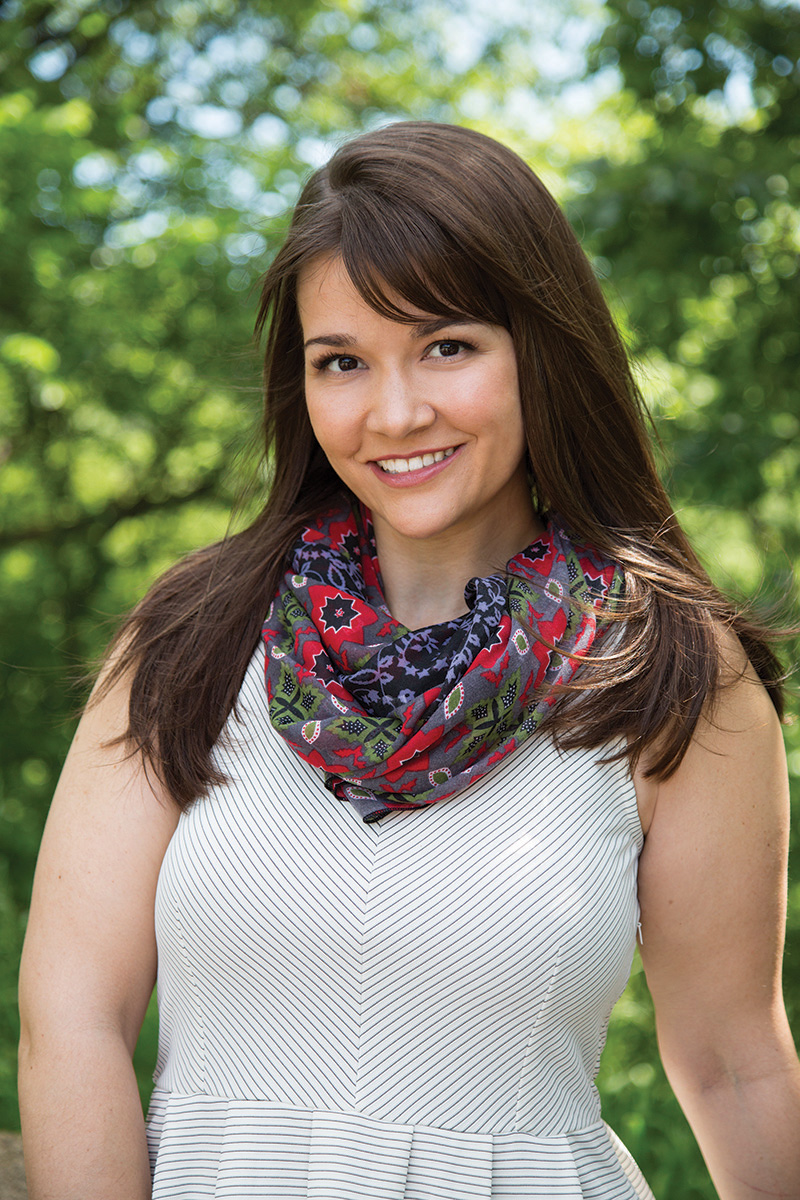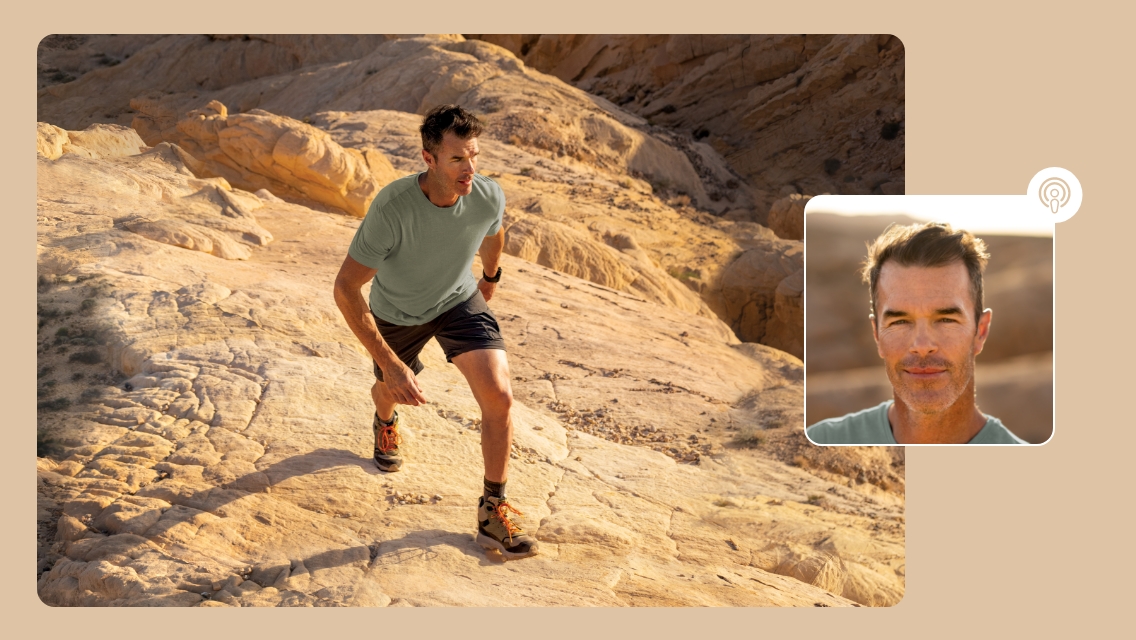Ryan Sutter had a plan — and it meant hiding the map from his two kids. He’s always felt at home in the Colorado wilderness, and on this particular camping trip, Sutter, who’s from Fort Collins, hoped to impart some wisdom to his now teenagers that’s best discovered in the natural world.
After enjoying a nearby lake view, Sutter suggested taking a shortcut back to their campsite. Off the trail. With no guidebook. He challenged them to notice landmarks and objects, and trust that they could reach their destination despite abandoning the beaten path.
“I tried to get them to understand that we’re not lost just because we’re not on the trail,” recalls Sutter — who did, in fact, know the way. “It felt like a metaphor for life, in which, especially for kids, they’re conditioned to go to school and then college and then to get a job. It doesn’t have to be that way. You can have your own life and not be afraid of taking chances and getting off the trail in life, so to speak.”
 It’s not the first time Sutter has taken a risk and found reward. The former college and pro football player and current firefighter appeared on the first season of ABC’s The Bachelorette in 2003 after much hesitation, figuring his quieter personality wouldn’t be a fit for television. The producers encouraged him to simply start with an application. “And the next thing you know, I’m on the show, I meet my wife [Trista], and my whole life has changed,” he recalls about establishing Bachelor Nation’s longest married couple.
It’s not the first time Sutter has taken a risk and found reward. The former college and pro football player and current firefighter appeared on the first season of ABC’s The Bachelorette in 2003 after much hesitation, figuring his quieter personality wouldn’t be a fit for television. The producers encouraged him to simply start with an application. “And the next thing you know, I’m on the show, I meet my wife [Trista], and my whole life has changed,” he recalls about establishing Bachelor Nation’s longest married couple.
When Ryan began suffering body-wide pain and debilitating fatigue in March 2020, it was Trista who became his health advocate and researcher. After consulting with his physician and a rheumatologist, his labs indicated high levels of antinuclear antibodies (often associated with autoimmune disease), but the doctors ruled out lupus and cancer.
Then Trista found functional-medicine practitioner Jill Carnahan, MD, and the answers to Ryan’s mysterious illness became clearer. Carnahan sought to find the root cause of his illness, an approach that better suited Ryan too: “You just feel like someone actually is finally listening and finally believes you and that there’s something wrong.”
In May 2021, Carnahan diagnosed Ryan with Lyme disease, which is caused by the spirochete Borrelia burgdorferi (and more rarely, Borrelia mayonii). It is transmitted to humans through the bite of an infected blacklegged tick, commonly known as a deer tick. (For more on why tick-borne diseases like Lyme continue to confound the medical community, visit “A New Look at Chronic Lyme.”)
She also detected mold toxicity, most likely due to his work as a firefighter. (For more on mold and your health, see “Is Mold Affecting Your Health?“.)
Ryan declined the anti-inflammatories a rheumatologist prescribed — he felt they would mean “a lifelong commitment to treating symptoms.” The functional-medicine approach, however, included lifestyle changes and a battery of supplements and herbs that required much trial and error (and to his chagrin, excess time and costs).
When Carnahan pinpointed the mold toxicity, she added binders to his treatment plan, along with a focus on detoxification through saunas and support through sleep, and suggested changes to his diet, such as removing gluten and limiting processed foods.
Now, after three years of treatment and experimentation with bee-venom therapy, Ryan, 48, is feeling better and able to envision the second half of his life.
Q&A With Ryan Sutter
Experience Life | The way you’ve described your illness, it sounds like it really sidelined you. What were those initial symptoms, and how did you ultimately get diagnosed with Lyme disease?
Ryan Sutter | It was March 2020 — all my symptoms started at the same time as COVID. I also went back to the fire academy, and I was exposed to a lot of mold. It was the perfect storm of just really getting tired and weak and then my body being hit by a million different blasts that I just couldn’t fight off anymore.
I started seeing doctors and not finding answers, but Trista encouraged me to keep looking. Together, we worked through this. I’m fortunate enough to have that advocacy, where I know other people probably don’t.
When we found functional medicine, it seemed like it was going after the root cause, which gives you hope that you’re going to find a better way to get through your life and be like yourself again. That’s a refreshing thing to hear from a doctor. Dr. Jill Carnahan found the mold toxicity and the Lyme disease.
When I told her something just didn’t feel right, she said, “You need to trust yourself, and if it doesn’t feel right, then it probably isn’t right, and we’ll find something that does feel right.” And so we did.
EL | Is that how you decided to try bee-venom therapy? It’s a more unconventional approach — was it part of your treatment plan?
RS | No. I asked her, and she was supportive of it, regardless of the fact that it wasn’t something in her wheelhouse.
I found quite a bit of relief working with The Heal Hive for testing and lifestyle changes, along with adding bee-venom therapy. I keep a bee house in my pantry. So, I go in there and feed honey to the bees. This is the hard part because they’re eventually going to sacrifice their lives for this therapy. Every time they sting me, I say, “Thank you for the medicine.” I do six to eight stings every other day. I’ve been doing that for over a year now, so it’s been pretty consistent and seems to be helping. But I would have never thought that I would be stinging myself with bees every other day.
What I don’t want to do is encourage everyone to go to bee venom. What I do want to encourage is everyone to find their unique path and to trust themselves.
EL | What were some of the lifestyle and health changes you made that have helped you?
RS | I pay attention to recovery far more than I used to, including sleep.
I’m the first one up in my family, so I sit there as the sun comes up and just ease into the day. I usually make a cup of hot water with lemon and honey and sit there for a little while and do some breath work. What’s helped me is sleep, recovery, nutrition — and I always try to get outside.
EL | Being in nature seems like it’s always been integral in your life. Do you feel like that’s instinctual as a Coloradan?
RS | I’ve always said that nature is my church. There’s a spirituality to it. There’s definitely something healing about just breathing natural air and being around natural things. It’s always sort of humbling. It’s kind of like therapy now.
EL | You’ve been an athlete most of your life, playing football and hockey, and hiking and mountain biking. You’re a firefighter. You even competed on American Ninja Warrior. All of that requires a high level of fitness. How has your approach to fitness changed since your Lyme diagnosis?
RS | The problem with me wasn’t exercising — I was always pushing myself, always seeing what I could do, seeing if I could do more. Pedal to the metal in life, 100 percent of the time. Truthfully, I think I just got to an age where that was too much. My body short-circuited.
Now, I balance my exercise with recovery and don’t overexercise. I’ve taken my foot off the gas.
EL | How did the team at the firehouse respond to your health diagnosis and lifestyle changes?
RS | No one has ever said one single thing that’s negative or derogatory or insulting or in any way offending. They’re like a second family.
We all cook and we eat our meals together at the firehouse. On my days to cook, I’ll cook things that fit into my diet, and ironically, the crew loves it, and I think that they would eat that way more often if it wasn’t so ingrained in our culture to eat differently.
Some of them will do the saunas and nutrition, and they all get more sleep. They can see that I’m healthy, that this is working for me, and it’s contagious.
EL | How are you feeling these days — and what’s next for you?
RS | I feel a ton better than I did two years ago. I feel this is the beginning of the second half of my life. I wish I knew exactly what was next, but that’s part of the fun, right?
On the Cover
For more intimate, thought-provoking profiles of our inspiring and influential cover subjects, visit our On the Cover department.





This Post Has One Comment
Ryan, what a huge encouragement you are! I watched you and your lovely wife, Trista when you both did “The Bachelorette”, and even when you got married—I wanted the best for the two of you! I knew that you were a strong guy, and I was so sorry to read about your Lyme Diagnosis. I too have Lyme Disease, and have had it since around 1983, and I nearly died! Thank-you for this article, and drawing people’s awareness of how devastating, and life changing this disease can be! The more awareness that this is a real Bonafide Disease, then perhaps we can get more research done for the future of people who acquire getting this disease! In 1983, even less was known, but I can tell you that it ruined my life—my career plans; my family all leaving me, and now being on my own at 68 years old, it doesn’t seem to get any easier! I too was tested for Lupus, MS, and other diseases—all to find out about the Lyme Disease. I like your attitude, and how determined you have been to beat it! The other component is that you have, obviously had an extremely supportive wife, and family.! I am happy for you, but many of us do not! Take care, and keep being a shining example of fortitude, and pushing forward with what worked for you! My hope is for future generations, long after I am gone, to be able to have a cure, and live a normal life once again, and for always! Take care, and God Bless you for coming forward, and for being so brave to talk more about this debilitating disease, and the path you are taking to get better!!! Vicki L. Cristiani